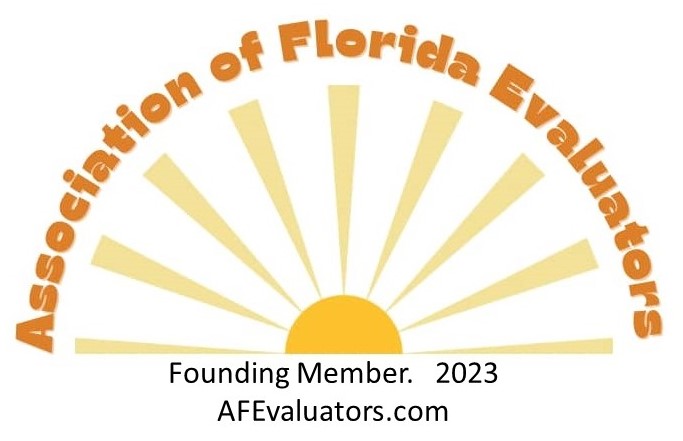|
Talking About
Florida Homeschooling... Evaluations and More |
A good evaluator works for the parents, assisting them in meeting legal requirements and in supporting them when districts overstep their bounds." |
|
A lot of high school students earn college credit before graduating high school. Several avenues for doing this are available to homeschooled students and a lot of students graduate high school as homeschoolers with several college credits or even a two-year AA degree to their name. AP Exams Advanced Placement (AP) courses are a popular option in schools. Part of the reason for their popularity is that high schools get higher ratings if they have more of their students take AP exams and higher ratings can lead to more funding. Note that some ratings aren't even based on the scores achieved but on the number of exams taken. This is why some high schools push all of their students to take AP exams from the first day of high school--even if they aren't stellar students. Beware: AP classes were originally meant to be the equivalent of college classes, but in recent years, many have criticized them as being sub-par and only teaching what is needed for the AP exam. See articles in The Atlantic, Washington Post, Stanford News, and from testing companies.
AP exams can be taken without enrolling in an official AP class, and the AP exam score is what determines whether a student might earn college credit for studying AP materials. The College Board, the company that runs the AP exams, offers resource suggestions to prepare for the AP exams; parents can use those materials at home. (Just be careful not to call anything an AP class on a child's transcript unless permission has been obtained from the College Board since AP is trademarked. But it is supposed to be fairly easy to get permission from them if using their recommendations for curriculum.) Florida law guarantees the right for home education students to be able to take national assessments, such as the AP exams, at local public schools. Each district's home education office, per state law, is supposed to inform students of the dates and locations of the tests as well as registration deadlines. If interested in taking an AP exam, contact them at the beginning of the school year as the College Board has pushed for students to be registered as early as October for the tests that are administered in the Spring. CLEP Exams The College-Level Examination Program (CLEP) offers a number of tests that can be used to prove learning. These tests are used by Florida public schools to grant high school credit in leiu of taking an actual class (see their course list--CLEP tests have their own section in recent lists of 9-12 classes available to public school students), so homeschool parents can use them the same way. If your child has already learned material, you could have the student take a CLEP exam to prove that learning and justify giving a credit without using curriculum to study the subject further. These might also be used to earn college credit. CLEP exams can be especially useful for proving foreign language learning. Colleges often require two years of high school foreign language from an accredited source for admission and/or graduation. Those who don't want to use sources like FLVS or dual enrollment for learning a foreign language could use any resources they like to learn and then take a CLEP exam to verify that learning for a college. Dual Enrollment In Florida, high school students can take college classes while in high school and earn both high school credit and college credit at the same time. Some people pay for dual enrollment classes taken at a local private college or these days, with the power of the internet, students might even take classes online from a variety of colleges or universities from around the world. But a large percentage of students take advantage of Florida's free dual enrollment classes through state colleges and universities. Home Education students (those for whom a letter of intent was sent in) can take classes completely free-of-charge at local community colleges but may have to pay for books and/or fees at state universities. Some dual enrollment classes give identical credit. So a semester of college American History would also count as a semester of high school American History. But other classes are, per the latest Florida Dept of Education list of equivalent credits, worth double; so, for example, a semester of English Composition 101 can count as a full year of high school English. Classes that include a lot of writing, a separate lab section, or foreign language tend to be ones that count double. And some teens take dual enrollment courses even while in middle school. We found the dual enrollment system much easier to negotiate than we expected. We went to ask questions and within 3 weeks, my teenagers had attended an orientation, taken the PERT (Post-secondary Education Readiness Tests: an untimed college placement test) free with a voucher and received their results, gotten a form signed by our local home education liaison to verify that they were home education students, turned in paperwork including a list of classes that I, as both their official high school counselor and parent, was allowing them to sign up for, and signed up for their first college class. I found little information available on our college's website as it seemed to assume that a school guidance counselor was directing the student's path in signing up for dual enrollment courses, but I wrote details about our journey in hopes it would help others traversing this path. While college procedures vary from one another, our journey may help you understand what was required. Read here for our story. In my experience, the dual enrollment courses did not seem to match the quality of some of the very rigorous homeschool co-op classes or even classes that I'd taught my own kids, but for our family, dual enrollment was definitely a better option than AP or CLEP exams. Why? My children earned real college credit through dual enrollment--not just a chance to possibly earn college credit as happens with AP and CLEP exams. This was important to me as one of my children opted to join the military after high school but he has earned college credit that will help him with promotions in the military. If he had taken AP or CLEP tests but not enrolled into a degree-seeking program at a college, he would have entered the military with no college credit. We weren't seeking a super-rigorous college education but were looking at the practicalities of earning what was needed to succeed in their chosen paths in life and dual enrollment was a great fit for that--even with my daughter who wants a career that requires a four-year degree. She not only earned more than a year of totally free college credit while in high school, but then earned a scholarship that gave her another totally free year of college to finish a two-year degree; two years of free college was a fabulous deal for our budget! With an AA, she's guaranteed acceptance at another state college or university where she can finish her bachelor's degree using a Bright Futures scholarship. On the other hand, if a student wants to go on to a rigorous top-name college or university, which is the better route? I was a volunteer interviewer for the college admissions committee for a top school, the University of Chicago, for more than seven years. Our Dean of Admissions, who had been the Dean of Admissions at a couple of Ivy Leagues previously, bemoaned the trend of taking too many AP courses as he saw students who were overwhelmed and would have done better with ordinary high school courses instead of earning low scores on AP courses and the related exams. A better grade on a solid non-AP course can look better to college admissions committees. So, first, make sure your child is ready to handle an AP course (or dual enrollment or such) and be ready to drop it and transfer to a class that's a better fit if it is too much. Dual enrollment credits often won't transfer to a top university, but they aren't wasted effort as they can still show the admissions committee that the student can handle college-level work and can help gain admission. I know this helped me get into the University of Chicago though I went to high school in one of the poorest counties in the U.S.A. More important, in my perspective as a former interviewer, is what the student does on his (or her) own. A student who is really a good fit for a rigorous college will seek out advanced reading materials on his own. He'll research a topic or field of interest. He'll read academically challenging materials. He'll find a research lab to work with or some way to take on some intellectual challenges. Those are the sorts of things that really help more than a huge number of AP, CLEP, or dual enrollment credits. Doing things to show intellectual curiosity, demonstrating some kind of diversity (which could be racial or ethnic but could also be diverse experiences in something that the student is passionate about and may likely bring to the campus to make it more diverse and interesting), and having some evidence that the student knows the route to success (that the student has worked hard on something that might not even have been academic but shows that the student knows how to strive for what he wants) are really much more important than most families imagine in getting admitted to a top institution. Cheryl Trzasko FLHomeschoolEvaluations.com
4 Comments
1/19/2022 04:34:41 am
My favorite part of this article is part of the reason for their popularity is that high schools get higher ratings if they have more of their students take AP exams and higher ratings can lead to more funding. Someone recently told me about this and it is different from what I understand. Thanks for helping me understand AP course-based high school.
Reply
Your blog is very useful who wants to know about "
Reply
Your blog is very useful for those who want to know about "
Reply
4/17/2023 06:32:08 pm
Your blog is very useful who wants to know about "College Classes" ,and in this blog you have explained lot more about "College Classes". Today , many people are confused about "easy credit", but I feel that your blog will put an end to that dilemma . Please write a blog like this in the future. I have also written an article on "Easy College Credit", which I hope will provide some more information to your valuable readers.
Reply
Your comment will be posted after it is approved.
Leave a Reply. |
Archives
April 2024
Categories
All
|

 RSS Feed
RSS Feed






